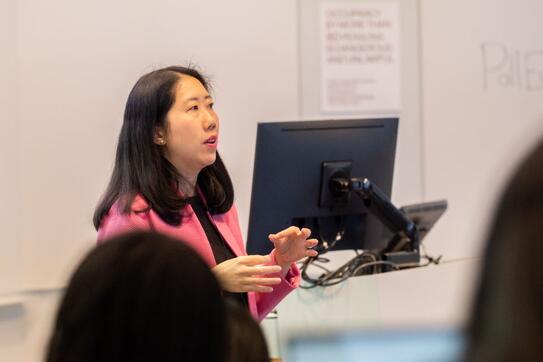
Educating a New Generation of Entrepreneurs
Three questions for Lang Center Faculty Director Angela W. Lee

Three questions for Lang Center Faculty Director Angela W. Lee


Angela Lee teaches venture capital, leadership, and strategy courses at CBS. She brings 20 years of innovation, strategy, and entrepreneurship experience to the classroom. She started her career in product management and then moved into strategy consulting at McKinsey. Angela is passionate about entrepreneurship and has started several companies in the education sector. She is a startup investor and the founder of 37 Angels, an investing network that has evaluated 15000 startups, invested in 80, and activates new investors through a startup investment boot camp.

Mattan Griffel is a recipient of the Dean's Award for Teaching Excellence. Mattan is a two-time Y Combinator-backed entrepreneur and the Co-Founder of Ophelia, a company that helps people quit opioids without having to go to rehab.

Christian is an Assistant Professor within the Finance and Economics Division at Columbia Business School. His research focuses on macroeconomics and labor economics, with additional interests in public economics. The common theme behind his research is to understand the determinants of earnings inequality and the role redistributive policies. Before joining Columbia, Christian received a Ph.D. in Economics from Princeton University where he was named a Fellow of Woodrow Wilson Scholars and was awarded the Towbes Prize for Outstanding Teaching.

Stephen Zagor is a New York City based Consultant and Educator, focusing on restaurants and food businesses. He has developed an extensive knowledge of the culinary industry, specializing in the business side of food enterprises.
As a consultant Steve has provided comprehensive support to a wide variety of clients including entrepreneurs starting restaurants, food retail businesses and food products. His clients have included large public companies, investment funds, government agencies, lawyers, large restaurant groups and small food business owners.


With nearly 90 academic publications, over 50 students, half a dozen patents, and nearly 10 million online followers, Moran Cerf is one of the leaders in the research and applications of neuroscience in business.
Cerf holds a PhD in neuroscience (Caltech), an MA in Philosophy, and a BSc in Physics (Tel-Aviv University. He has taught leadership and marketing at NYU and the Kellogg School of Management, where he was a professor of neuroscience and business for nearly a decade.

Professor Tania Babina joined the Columbia Business School in 2016. She received a Ph.D. from the Kenan-Flagler Business School at the University of North Carolina. Her research is at the juncture of corporate finance, labor economics, and entrepreneurship. More broadly, she studies inter-relationship between human capital and firm investment, financing, and organizational choices. Her current research explores drivers of entrepreneurship and factors predicting entrepreneurial success. Long-term, she seeks to understand how human capital affects the nature of a firm and firm boundaries.
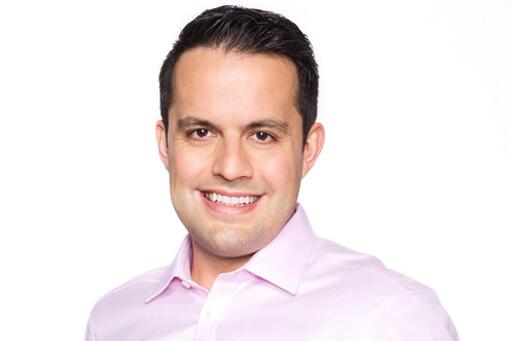
Ezra Mehlman is a Managing Partner at Health Enterprise Partners L.P, a growth equity firm focused on healthcare IT and services. Ezra joined HEP in 2010, while completing his MBA at Columbia Business School. Prior to joining the team, Ezra was a Senior Analyst at the Advisory Board Company (NASDAQ: ABCO), providing best practice consulting and research services to hospitals and health systems. After leaving the Advisory Board Company, Ezra served as a Senior Consultant in the health care practice of Booz Allen Hamilton focusing on engagements in the provider space.

Brendan Burns has spent over 20 years at leading technology, graphic arts and financial institutions including Culture.tech, 1000|Museums, Moody’s Investors Service, Salomon Brothers, and AdOne, an Internet software pioneer. For the past 10 years Burns has managed consulting, advisory and strategic growth assignments under Stepping Stone Capital Partners and Stepstone Art Resources.

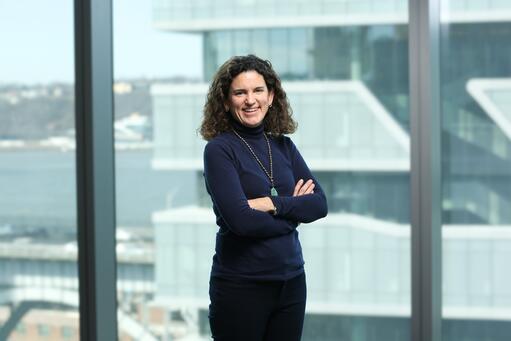
Angela Quintero is an adjunct faculty and Managing Director of the W. Edwards Deming Center for Quality, Productivity, and Competitiveness. The center promotes operational excellence in business through the development of research, best practices, and strategic planning by sponsoring applied research, focused education and professional development initiatives, disseminating best practices, and fostering partnerships with companies in the area of operational excellence.

David B. Haber is a member of the Tech Group and the M&A and Corporate Finance Practice Group. Mr. Haber has extensive experience in mergers and acquisitions and venture capital transactions, with an emphasis on buying and selling venture-backed companies. During his career, he has played a significant role in over $10 billion worth of transactions, with a concentration on transactions in the technology and life sciences sectors. Mr.

Michael Mauskapf is an Assistant Professor of Management at Columbia Business School, where he studies the dynamics of creativity, innovation, and success in cultural markets, especially the music industry. His research has been published in the American Sociological Review, Academy of Management Review, and the Academy of Management Best Paper Proceedings, and it has been featured in a number of popular press outlets, including ABC News, BBC News, The Economist, New York Post, NPR, and Quartz. Michael is a graduate of the University of Pennsylvania (B.A.

Farah is an Adjunct Assistant Professor of Business at Columbia Business School. She teaches an a Product Management course with a focus on AI and Data products. Farah is also a founder at Dioptra, a legal tech startup backed by YCombinator.
Before that, she held different ML and PM roles at Spotify, Argo, and ZS Associates. She received her MS in Operations Research from Columbia Engineering School and another MS in Engineering from Centrale Nantes.
Three new Tamer Fund for Social Venture awardees were selected after their participation in an application screening round, a due diligence process with student teams from the Columbia Business School course Investing in Social Ventures, and a final pitch to the fund’s investment board.
A group of Columbia Business School alumnae has successfully raised more than $400,000 to dedicate a cluster of study rooms inside David Geffen Hall.
Financial education at CBS draws upon the dynamic and diverse expertise of its faculty and alumni.
This paper presents the Startup Cartography Project, which offers a new set of entrepreneurial ecosystem statistics for the United States from 1988-2016. The SCP combines state-level business registration records with a predictive analytics approach to estimate the probability of “extreme” growth (IPO or high-value acquisition) at or near the time of founding for all newly-registered firms in a given year. The results indicate the ability of predictive analytics to identify high-potential start-ups at founding (using a variety of different approaches and measures).
Abundant research has established that first proposals can anchor negotiations and lead to a first-mover advantage. The current research developed and tested a motivated anchor adjustment hypothesis that integrates the literatures on framing and anchoring and highlights how anchoring in negotiations differs in significant ways from standard decision-making contexts.
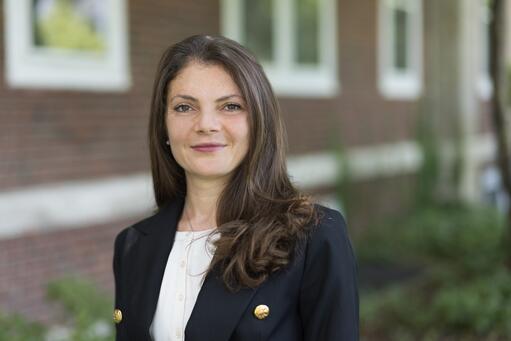
Nataliya Langburd Wright is an Assistant Professor in the Management Division of Columbia Business School. Her research focuses on entrepreneurial strategy, particularly the strategic and technological drivers of global entrepreneurial growth. It is published in the Strategic Management Journal and Research Policy and earned awards from the Academy of Management, PTC, the Columbia Business School Digital Future Initiative, and the Strategic Management Society.

Dr. Jorge Guzman is an associate professor at the Management Division in Columbia Business School. Jorge received his PhD from the Sloan School of Management at MIT, and was previously a postdoc at the National Bureau of Economic Research (NBER) and a lecturer at MIT Sloan.


With nearly 90 academic publications, over 50 students, half a dozen patents, and nearly 10 million online followers, Moran Cerf is one of the leaders in the research and applications of neuroscience in business.
Cerf holds a PhD in neuroscience (Caltech), an MA in Philosophy, and a BSc in Physics (Tel-Aviv University. He has taught leadership and marketing at NYU and the Kellogg School of Management, where he was a professor of neuroscience and business for nearly a decade.

William J. ("Bill") O'Farrell has been starting and running tech companies for longer than he'd like to admit. He was most recently co-founder and CEO of Body Labs, a computer vision and AI company focused on providing the human body as a digital platform for a broad range of markets, including online apparel sales, gaming, health and fitness and AR/VR applications. Amazon purchased Body Labs in September, 2017.

Carlos Gila is an Adjunct Professor of Management at Columbia Business School. He also teaches MBA courses on Management and Entrepreneurship at IE Business School in Spain.


Michael Ewens is the David L. and Elsie M. Dodd Professor of Finance and co-director of the Private Equity Program. He is also a Research Associate at the National Bureau of Economic Research (NBER), Associate Editor of the Journal of Financial Economics, Associate Editor at the Review of Financial Studies, Assoicate Editor at Management Science, Associate Editor at the Journal of Corporate Finance, and co-editor of the Journal of Economics & Management Strategy. He received a Ph.D.
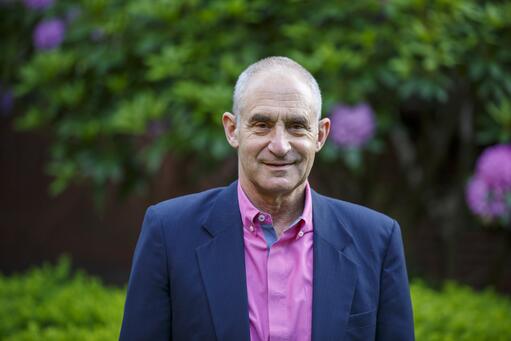
Daniel Isenberg has been a thought and practice leader in entrepreneurship and entrepreneurship ecosystems since the 1980s and has taught, practiced, and invested in entrepreneurship since then.


Dave Tamburri is a Managing Partner of Health Enterprise Partners, L.P. Prior to joining HEP in 2009, Dave was a Vice President for Susquehanna Growth Equity, a private equity group focused on growth stage technology companies. He was formerly the President and Chief Operating Officer of Onward Healthcare, Inc., a Welsh, Carson, Anderson & Stowe portfolio company. Prior to Onward, Dave was an Executive Vice President of Pinnacor, Inc., a General Atlantic portfolio company, which went public.
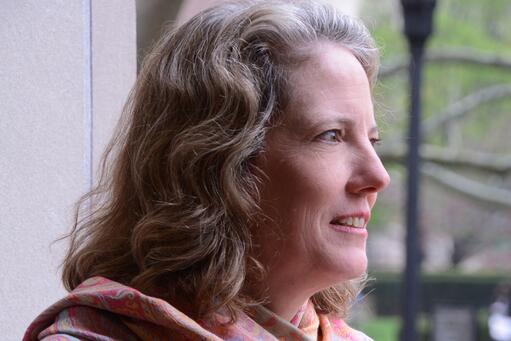
Patricia Angus, JD, MIA, TEP, is Founder and CEO of Angus Advisory Group LLC, an Adjunct Professor and Founder of the Global Family Enterprise Program Columbia University’s Graduate School of Business.